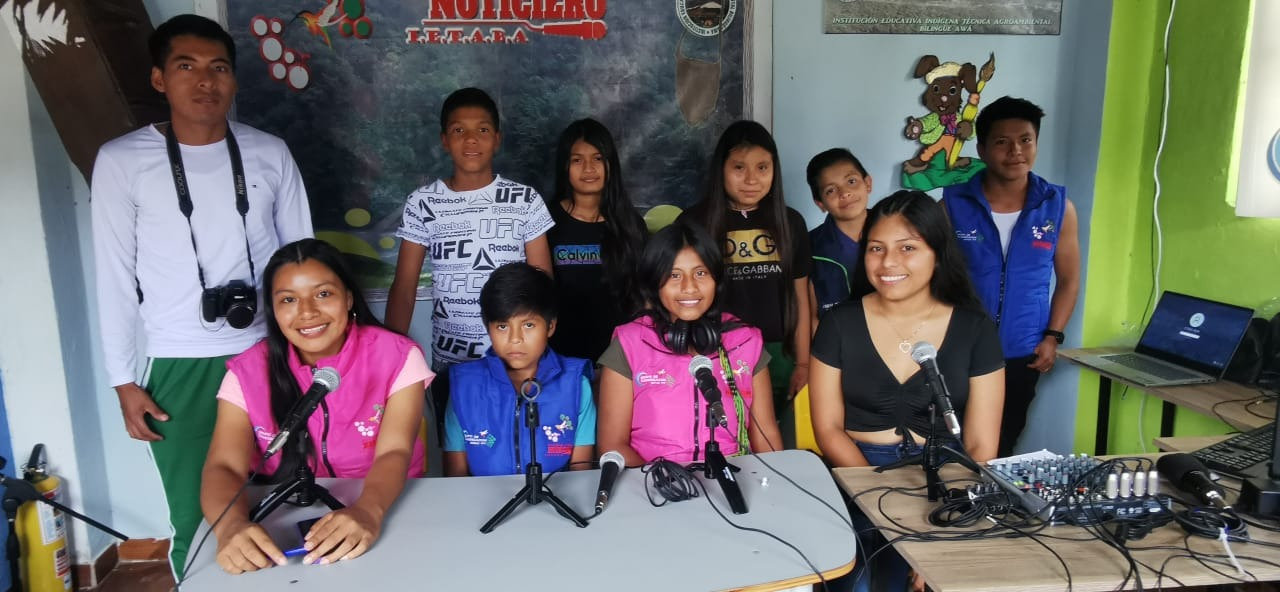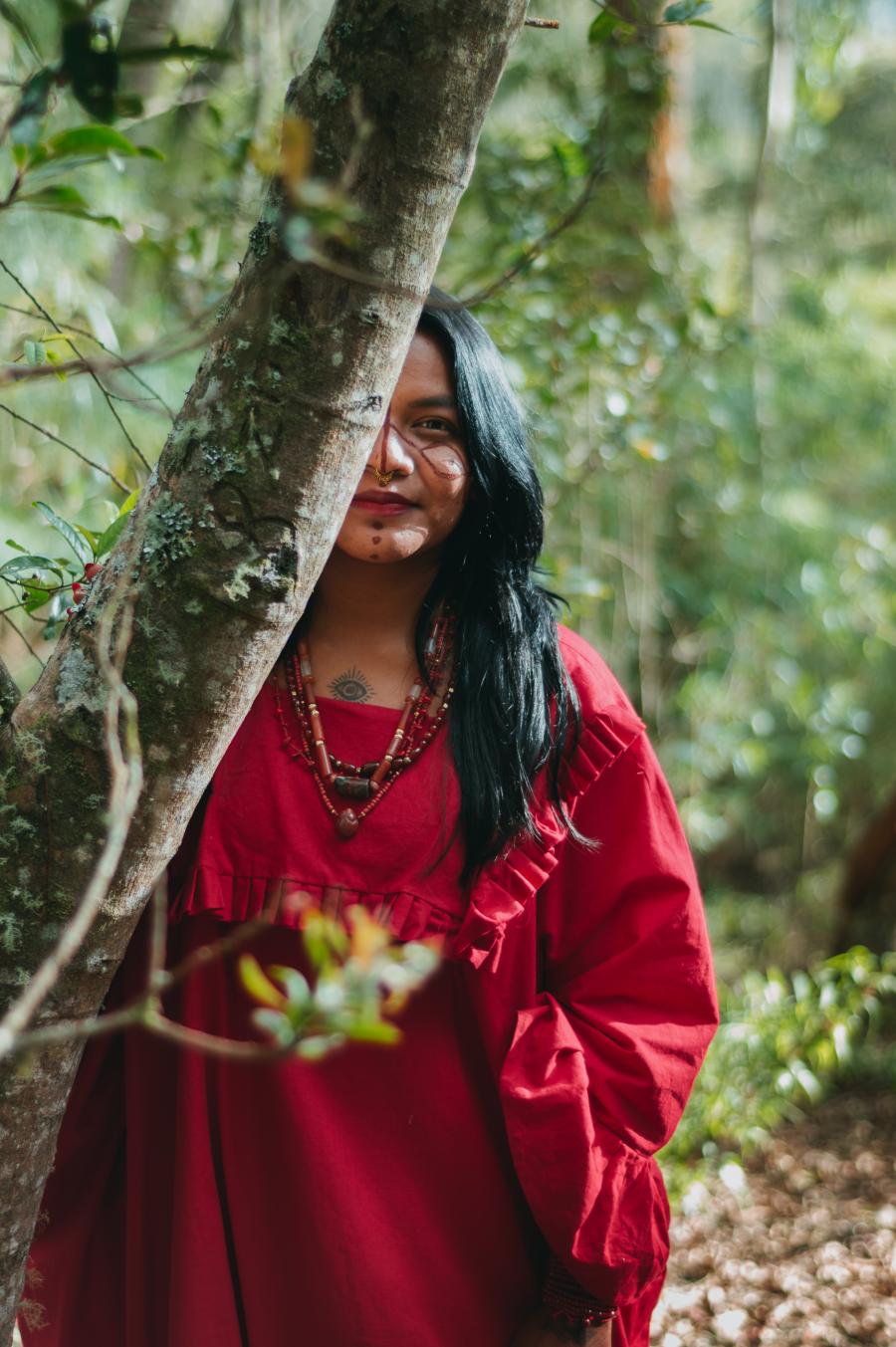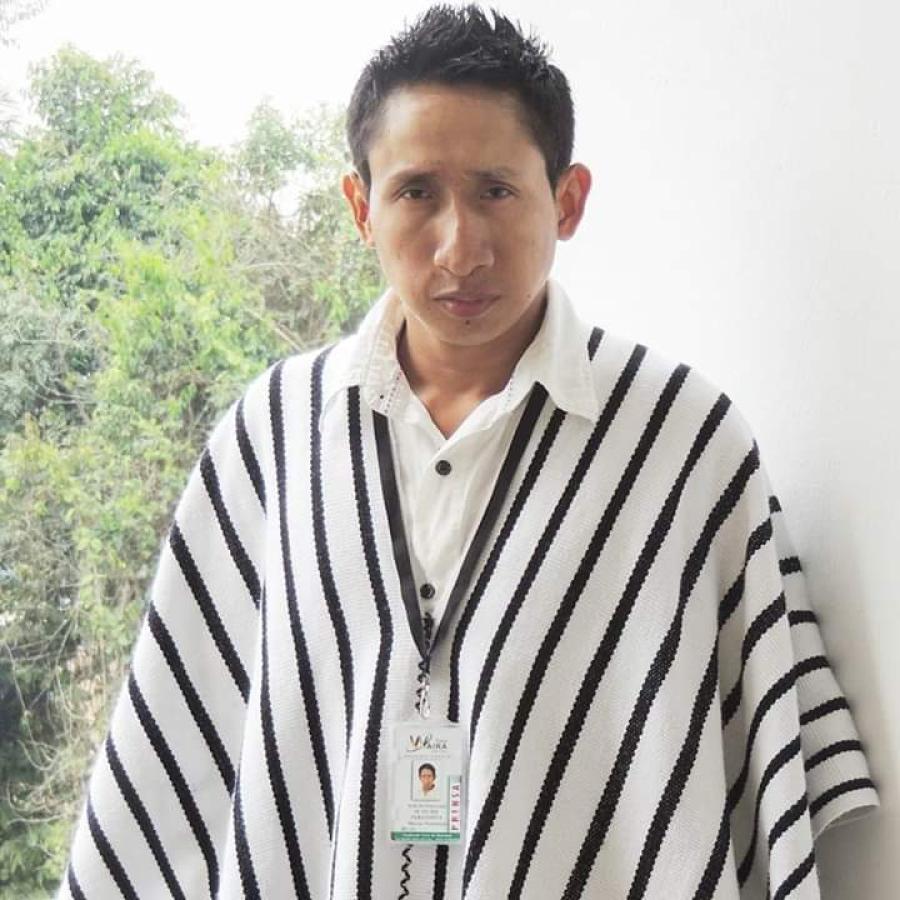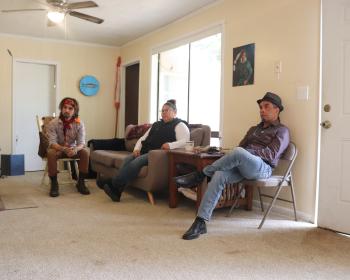
Ma kawiraruz pianaizpa sakamnu wat uzk+ntimtan Awa sukin
We are seeds that germinate in the middle of the tropical jungle, in southwest Colombia, in the municipality of Barbacoas, department of Nariño. This area is historically known to the Awá Peoples as cuaiquer (kwaiker). We, Awá, also live throughout the territory that now includes Colombia and Ecuador.
We are Inkal Awa (mountain people) and we still keep our language, Awapit, as well as the customs and traditions of our ancestors. We weave hygras and baskets, learning from our parents, who guide our walk. We dance to the sound of the marimba, Mother Nature cares for us and feeds us and in reciprocity, we respect her and take care of her.
We are young people who follow the path of our Elders and fight every day to keep our traditions alive in the midst of the adversities that life throws our way. In order to face these adversities, a project emerged focused on children and youth, because we wanted to have a voice. We want you to listen to us when we share knowledge on the radio.
In 2014, we formed a communication team of Indigenous students, at the facilities of the Awá Bilingual Agro-Environmental Technical Indigenous Educational Institution (IETABA). The objective was to create spaces for communication and research that allow the exploration of different skills for the production of audiovisual and radio media based on Indigenous worldviews and our struggles to claim our human rights.
We called it "Inkuapit," which means "winds" in Awapit and it has been a space that has allowed us to learn more in-depth about the reality of our territory, to get to know and strengthen our customs known through the stories that our Elders tell us. It is a way of stewarding our Awa identities from the perspectives of younger generations. It is a space where curiosity can go beyond what is around us, to free ourselves from the difficult situations that afflict our territory every day.
Our vision is to contribute to the common well being of our communities through informative processes that promote the participation of youth, women, men, and Elders. We aim to strengthen our values, cultural identity, and worldview. The objectives that we set for ourselves are to strengthen the use of Awapit and our customs and traditions as well as promote spaces to promote human rights through audiovisual and radio media in our territory.
The establishment of our radio station, Radio Escolar Comunitaria Inkua Pit, is aimed at strengthening our culture and language and sharing stories from our Indigenous territory over the years. We are collecting stories about the situations that have contributed to the survival of Awá Peoples over the years and about the strength needed to face different situations of violence and violation of human rights in the Inkal Awá territory.
We have always shared dialogues with our Elders, leaders, and knowledge keepers, which have allowed us to reflect and learn about governance in our territory. We are clear that our grandmothers, mothers, and sisters, are fundamental pillars in this process and that the role of Awá women has been significant.
Through interviews with women leaders, we have learned that women are the ones who create life, knowledge, order, care, and education. "Mothers are the first teachers. In the past, women did not have access to spaces and participation in organizational life, however, in recent years, they have managed to break barriers," as stated by teacher Marleny Canticus, who told us about the importance of education for women, as well as the relevance of having a word, voice, and vote in the different assemblies and mingas (gatherings) that take place in our territory.
We have also learned about issues relevant to women in our communities, among them weaving, as the teacher Carmela Pascal affirms, "The woman is the one who teaches her children to weave higras, baskets, fans, and likewise they teach their children through these tools to weave the path of their lives.”
In the same way, the teaching of our language falls as the responsibility of mothers, since it is they who are in charge of passing on knowledge in the first years of a child's life. We learned that there are beliefs and customs in which women actively participate. Women are not only mothers and wives, they are also midwives, leaders, and counselors, among many other roles.
Image: Inkal Awá women speaking out.
Culturally, Awá Elders are our most precious oral libraries to understand the world and to respect all beings. They hold the knowledge and wisdom that are communicated in the family and community. For this reason, as broadcasters, our interest is to be a medium for this knowledge to transcend current and future generations and communicate this to the entire world.
As Indigenous Peoples, we are an oral culture therefore due to the negative impacts of globalization and technological advances much of our traditional knowledge has been lost. However, we are fully convinced that together as the Awá Peoples, we will continue to survive and coexist with Mother Earth, with our customs and traditions, and our student community radio station will be one of the means to communicate our voices in our language and ensure our cultural survival.
In 2021, Radio Escolar Comunitaria Inkua Pit received a grant from Cultural Survival’s Indigenous Community Fund, which provides opportunities for international Indigenous radio stations to strengthen their infrastructure and broadcast systems and creates training opportunities for journalism, broadcasting, audio editing, technical skills, and more for radio journalists from Indigenous communities around the world. In 2022, the Indigenous Community Media Fund supported communities with 23 grants totaling $138,000 to Indigenous community media outlets from 13 countries.



